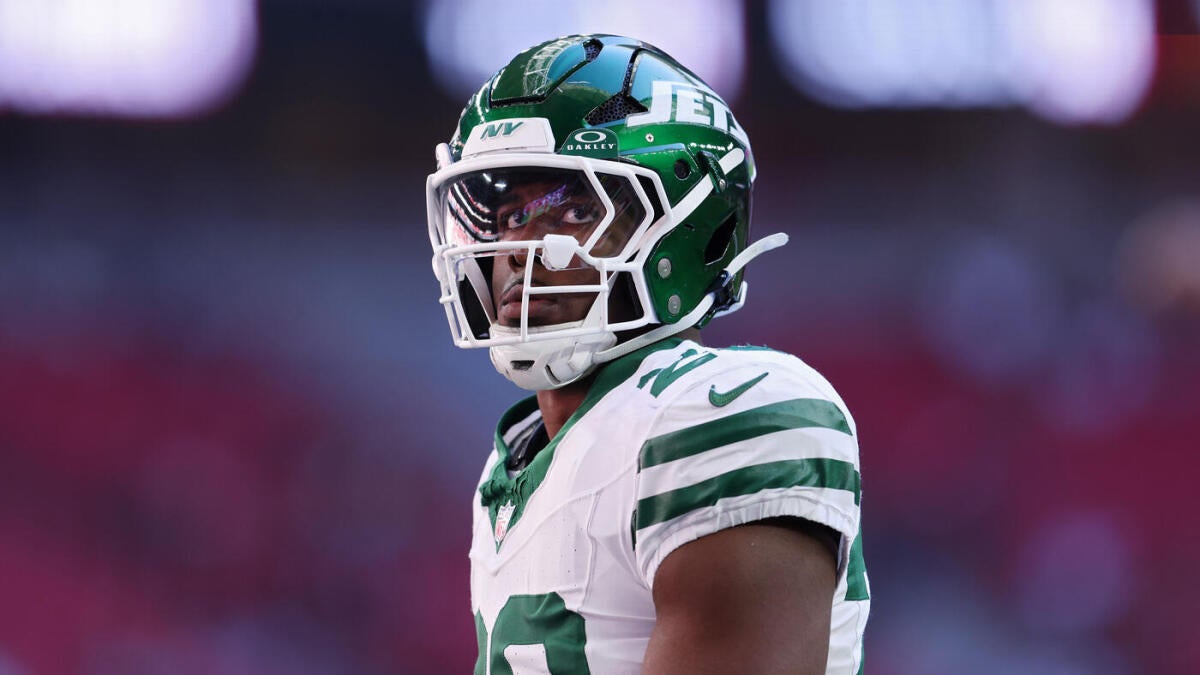The Evolving Role of Running Backs in the Modern NFL
The Changing Landscape of Running Back Valuation
The NFL has undergone a significant transformation in how it values running backs. Historically, running backs were the cornerstone of offensive strategies, commanding top-tier salaries and long-term contracts. However, the modern game has shifted dramatically, with teams increasingly adopting a committee approach and de-emphasizing the traditional workhorse running back. This shift is driven by several factors, including the rise of passing offenses, the increased emphasis on quarterback play, and the physical toll of the position.
The physical demands of the running back position contribute to its devaluation. The position is inherently risky, with a high likelihood of injury and a relatively short career span. Teams are now more cautious about investing heavily in long-term contracts for running backs, preferring instead to utilize a rotation of players with specialized skill sets. This trend is evident in the declining number of running backs receiving lucrative contract extensions and the increasing prevalence of short-term deals and franchise tags.
The Business Side of Football
Contracts in the NFL are more than just financial agreements; they are strategic tools that reflect a team’s priorities and long-term vision. For players, a contract extension signifies recognition of their contributions and provides financial security. For teams, it’s an investment in talent and a strategic move to maintain a competitive edge. However, the negotiation table can be a complex battlefield, with each side vying for the best possible outcome.
The recent situation surrounding New York Jets running back Breece Hall highlights these complexities. Hall’s public acknowledgment that he is “not really expecting” a contract extension before the 2025 season suggests a pragmatic understanding of his place within the team’s financial strategy. This statement manages potential fan and media speculation while focusing on what he can control: his performance on the field. Hall’s maturity and understanding of the NFL landscape are notable characteristics of his approach.
The Jets’ Strategic Priorities
The Jets’ decision not to pursue an immediate extension for Hall likely stems from a combination of factors. The most prominent is their recent financial commitments to wide receiver Garrett Wilson and cornerback Sauce Gardner. These extensions represent significant investments in the team’s core talent and reflect a strategic focus on securing key players at premium positions.
Furthermore, the Jets may be evaluating the long-term value of the running back position within their overall offensive scheme. The team may be considering the investment in other areas, such as offensive line improvements or quarterback protection, as potentially more impactful for sustained offensive success. This perspective aligns with the growing trend in the NFL of de-emphasizing the running back position and adopting a more committee-based approach.
Another factor at play could be Hall’s injury history. While he has shown tremendous potential, his rookie season was cut short due to a significant knee injury. The Jets may want to see a full season of consistent performance and durability before committing to a long-term, high-value contract. This cautious approach is understandable given the inherent risk associated with investing heavily in a running back with a recent injury.
Hall’s Path to a Contract Extension
While a contract extension may not be imminent, Breece Hall has a significant opportunity to solidify his value and potentially alter the Jets’ long-term plans. His performance on the field in the upcoming season will be crucial in shaping the narrative surrounding his future.
Hall needs to demonstrate his continued explosiveness, versatility, and durability. He must showcase his ability to contribute in both the running and passing games, proving that he is a complete offensive weapon. Additionally, staying healthy and consistently performing at a high level will be essential in alleviating any concerns about his long-term viability.
By exceeding expectations and establishing himself as a vital component of the Jets’ offense, Hall can significantly increase his leverage in future contract negotiations. He can prove that he is not just another running back but a difference-maker who can elevate the team’s overall performance. His ability to influence games and contribute to winning will ultimately determine his worth to the Jets and other potential suitors.
The Intangible Qualities of a Valuable Player
Beyond the statistics and financial considerations, there are intangible qualities that contribute to a player’s value. Leadership, work ethic, and a positive attitude can significantly impact a team’s culture and performance. Breece Hall possesses these qualities, which further enhance his overall value.
Hall is known for his dedication, his commitment to improvement, and his positive presence in the locker room. He is a respected teammate and a leader by example. These intangible attributes make him a valuable asset beyond his on-field contributions. Teams recognize the importance of these qualities and often factor them into their assessment of a player’s worth.
Conclusion: A Calculated Waiting Game
Breece Hall’s contract situation is a complex interplay of factors, reflecting the realities of the modern NFL and the evolving landscape of running back valuation. While an immediate extension may not be in the cards, Hall has the opportunity to prove his worth and potentially alter the Jets’ long-term plans. His performance on the field, combined with his intangible qualities, will ultimately determine his future value. It’s a calculated waiting game, where patience, performance, and a deep understanding of the business side of football will be key to achieving a favorable outcome. The Jets, on the other hand, are making a calculated decision balancing current financial commitments with the long-term value they place on the running back position and Breece Hall himself. Only time will reveal the ultimate resolution, but the narrative is far from over.











